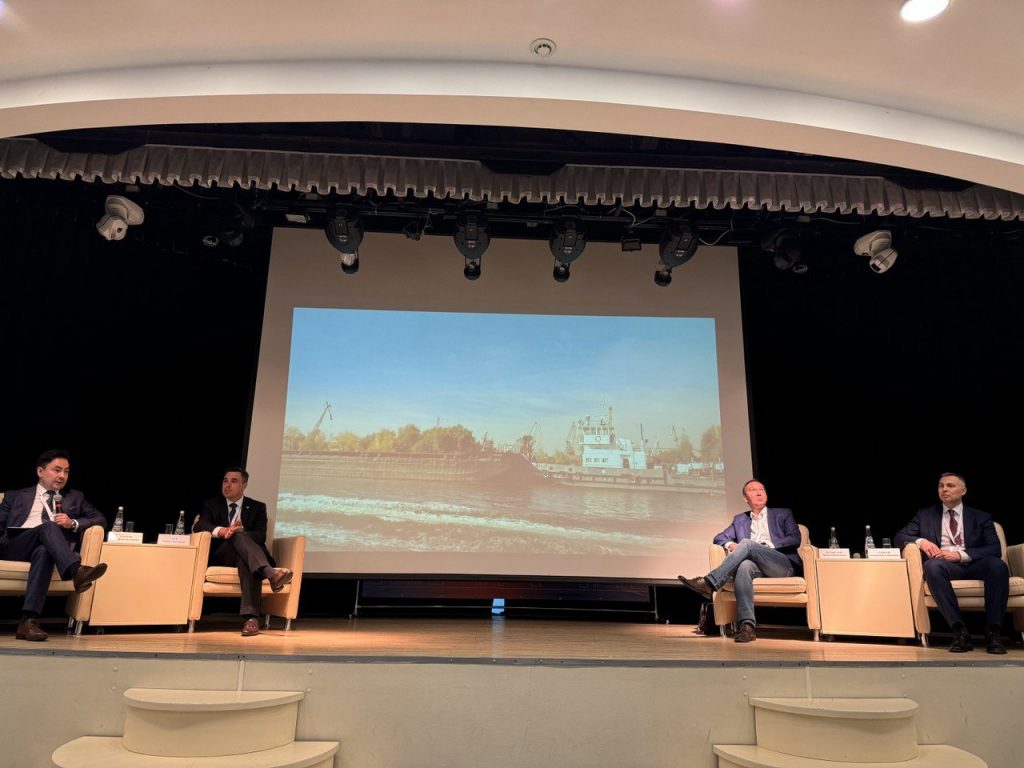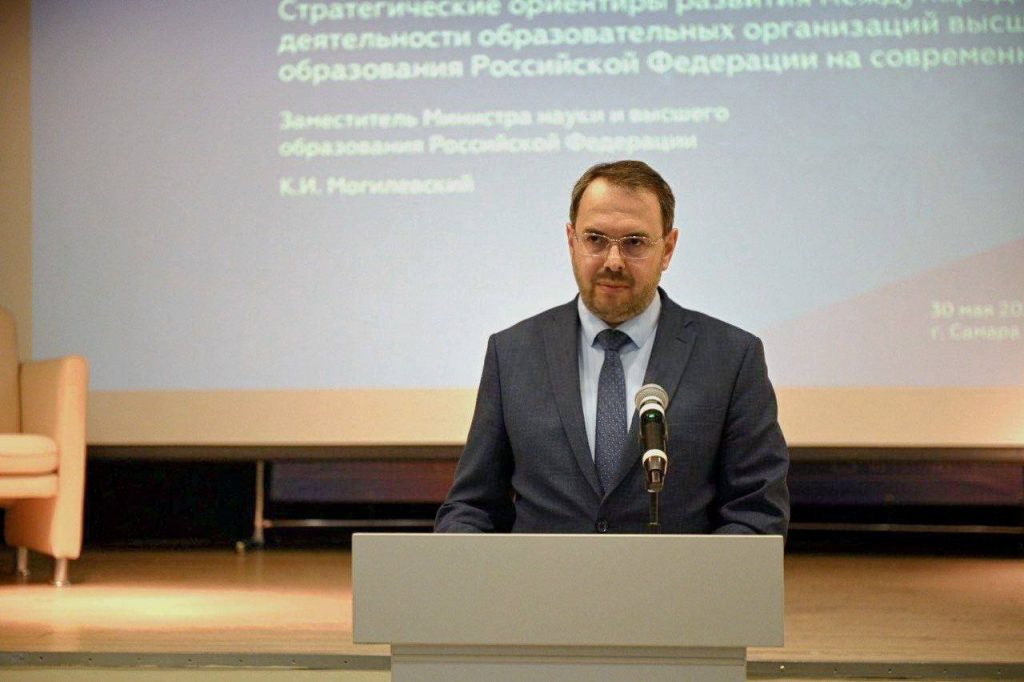Vice-rectors for international affairs gather in Samara to discuss current work


The meeting is held on May 30 – 31 with participation by Deputy Minister of Science and Higher Education of the Russian Federation Konstantin Mogilevsky.
The Deputy Minister reminded of the national goal defined in the decree of the President of Russia to have at least 500,000 international students in Russian universities by 2030. To achieve that, consolidated efforts are required from the universities, provinces, and federal authorities. Special emphasis was placed on the development of the branch network – such as KFU’s overseas branches in Jizzakh, Uzbekistan and Cairo, Egypt.
The first panel discussion was devoted to the consolidation of efforts of universities and regions of the country in the implementation of international strategies. Its moderator was Timirkhan Alishev, Vice-Rector for International Affairs of KFU.
“The panel discussion outlined the possible pros and cons of attracting foreign students for the regions, and also talked about the transformations that should take place in them in connection with the arrival of foreign students, related to infrastructural development, creation of new services, socio-cultural adaptation, and possible employment of students,” commented the Vice-Rector.
The experience of Tatarstan in terms of positioning the region as an attractive place to live and study, as well as its universities as platforms for the implementation of educational and professional trajectories, was presented separately. Our province currently hosts 22,000 international students, which makes it third by this indicator in Russia. At the same time, a rather complex system of work with foreign students is being formed in the region, which includes work both at the level of universities and at the level of ethnic cultural organizations and specialized agencies at the regional and federal levels.
The results of the discussions should be included in the methodological recommendations for the specialized services of Russian universities on the implementation of international activities in higher education and science.

